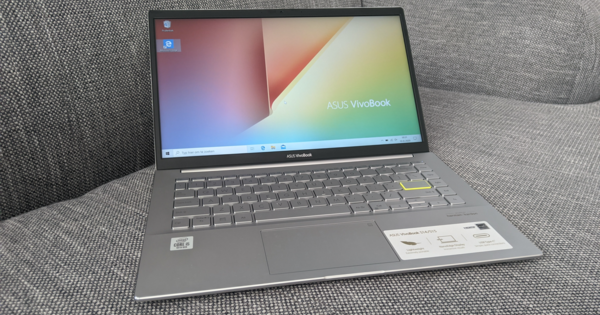Which browser do you use as a gateway to the internet? Most people stick to Chrome, Internet Explorer or Firefox and Apple users swear by Safari. The cards appear to be shuffled. Although there are many more alternative browsers that all excel in one way or another. And now we'll introduce you to it.
Tip 01: Avant – web designer
All browsers are based on a particular engine. At Mozilla this is Gecko, Google Chrome uses Blink and Safari uses WebKit. The engine controls the browser and determines the formats that are supported. This is why certain web pages look different on one browser than on another. Avant (Windows) uses no fewer than three engines: WebKit, Gecko and Trident (from Internet Explorer). Once you've landed the Avant Ultimate edition, you can easily switch between those engines with a single click. This is very useful, among other things, for those who design a blog or website and who want to quickly know how the website looks in another browser. Avant also supports multiprocessing, which means that when one tab goes wrong, it doesn't immediately freeze your entire browser. Moreover, this is one of the browsers that requires the least working memory. You can download the videos you watch in the browser directly, and Avant works with a multi-channel downloader that allows you to download files faster.

Alienforce - extraterrestrial
Alienforce is a fast tab-organized browser in a clean layout and works à la Firefox. In addition, the browser has a built-in sync function to exchange all Firefox bookmarks. Alienforce also supports private browsing and plugins.
 Less is more, is the motto of Midori, a lightweight browser for the older PC
Less is more, is the motto of Midori, a lightweight browser for the older PC Tip 02: Midori – old PCs
Less is more, is Midori's motto. It is therefore a lightweight browser for Windows that also works as a portable app. The browser contains only the necessities and the look of Midori is very sleek and minimalistic. Where an older laptop or PC can have a hard time with a modern browser that requires a lot of system resources, it may be able to handle Midori. Also notable is that DuckDuckGo is the default search engine of this browser, Google's competitor known for protecting user privacy. The browser adapts to the default language of the system and has several themes that change its appearance.

Tip 03: Coowon – gamer
Coowon (macOS, Windows) has a reputation as a browser for the online gamer who also likes to cheat with speed hacks and game botting. Game bots are tools that automatically perform both simple and complex functions in games. In online games, such bots often come in handy to grow crops, increase character power and so on; features that can otherwise be quite time consuming. Coowon is a browser based on Google Chrome. After installation, it also takes over the bookmarks of that browser. Speed control allows you to speed up and slow down Flash game play time. There's also support for the Xbox controller, and you can open multiple separate screens to log in to different or the same games at the same time. And for those who occasionally play a game during office hours, there's the special Boss button (Alt+F1) that lets you quickly hide all game screens, so that it looks like you're working hard.
 Vivaldi is a power browser with tons of personalization options
Vivaldi is a power browser with tons of personalization options Tip 04: Vivaldi – power user
A promising browser is Vivaldi (macOS, Windows, Linux) with more than a million users. That is considerable, especially since the scion only saw the light of day in April 2016. Vivaldi is a browser for the power user and that has mainly to do with the enormously wide personalization options. You can set almost everything: from the theme to the keyboard shortcuts, the mouse movements, the color settings and so on. Also very useful is the sidebar where your bookmarks as well as downloads and notes are collected. Even the history is very extensive and there is a graph showing your internet activity. All browsers currently work with tabs, but in Vivaldi it is possible to accommodate different pages on the same tab. This browser works with tab groups and when you hover the mouse pointer over a tab group, you see the thumbnails of all pages in that group. In addition, it is possible to put a tab to sleep, so that the web pages in that tab no longer use memory. Finally, Vivaldi supports mouse gestures that you set at the Preferences / Mouse. For example, you can link a mouse movement with pressing the Alt key to all kinds of functions: open a new tab, reopen a page, go back to the previous page, ...

Tip 05: Opera – net chatters
Opera (macOS, Windows, Android, iOS) is the first browser to have WhatsApp and Facebook Messenger built into its left bar by default. How handy, because now you can keep chatting while you are surfing the internet. In 2015, Opera was the rising star among browsers and had accumulated 55 million monthly users. In the meantime, this originally Norwegian company has been bought by a Chinese company and we know much less about the number of users. Opera has, however, undergone some significant changes thanks to the Chinese capital injection, such as a renewed interface, a built-in adblocker and an integrated VPN connection. Opera is clearly geared more towards mobile users these days. So if you also download Opera on your Android smartphone, you can enable synchronization between your computer and your mobile browser. Opera is also known for its energy efficiency, which is especially useful for your laptop. According to the manufacturer, the new battery saving function would ensure that you can surf 50% longer while on the road.

Tip 06: Tor – anonymous
After Edward Snowden's revelations, the Tor network is busy. Logically, people simply do not like to be eavesdropped by government agencies and marketing agencies. Tor (macOS, Windows) is the uncrowned emperor among privacy protectors. Tor's operation feels familiar because it's based on Firefox's source code. The online network Tor uses masks all your activities from the outside world. Tor is regularly discredited because it gives you access to the dark web, say the dark recesses of the internet. The dark web is made up of websites that are never indexed by Google. You will therefore not find the content via this search engine, but you will need special software for this. If you don't mind those dark web states, you'll still appreciate Tor for protecting your privacy. When you log in to a public wireless network in hotels or in public places, you know that you are at risk. A browser that follows the Tor protocol anonymizes and encrypts your internet traffic. Unfortunately, this protection also ensures that the loading of web pages is a lot slower. Tor browsers are also available for Android: Orbot and Orfox, and Onion is available for iOS.
 Yandew has the reputation of being the world's most beautiful browser
Yandew has the reputation of being the world's most beautiful browser Tip 07: Yandex – minimalist
Yandex (macOS, Windows, Android, iOS) is a Russian-Dutch company made known by the search engine Yandex Search. The headquarters is located at Schiphol, but the operational division is located in Moscow. 60% of Putin's citizens would use this Russian product. Yandex has the reputation of being the world's most beautiful browser. Upon installation, Yandex immediately proposes to become your default browser and wants to send browser data for analysis. We refuse both. After that, Yandex imports the favorites and the settings from your default browser. Yandex keeps itself as much as possible in the background, after all, the emphasis is on the content. With Yandex, it seems like the web page stands on its own. Anyone who thought that Firefox or Chrome excelled because of the minimalistic interface should reconsider their opinion when they discover the sleek looks of this Russian. There are no toolbars, just a tab strip and a search bar. Yandex is compatible with all Chrome plugins. The Chrome extensions are even transferred automatically when you switch to this browser.

Tip 08: Brave – bitcoiner
Brave (macOS, Windows, Linux, htpps://brave.com) originated in Mozilla Firefox. CEO Brendan Eich resigned after a scandal and founded a brand new browser. In May 2017, Brave raised no less than $35 million from interested investors in a minute and a half. Eich even launched a virtual currency in which people can invest. Moreover, Brave is turning the internet world upside down by launching a built-in ad blocker in the browser, a new revenue model and radically focusing on privacy. Brave is therefore fully equipped to block advertisements, trackers and viruses. The user who agrees to see advertising can benefit from micropayments, which is why Eich works with its own advertising network. You do need some knowledge of bitcoins, because that is the currency in which Brave pays out. Brave claims to withhold only five percent of the money raised — that's a lot less than the money that's now disappearing from all parties involved in advertising. The initiative is quite controversial, because meanwhile there is a train of lawsuits from American media companies against Brave, because the company would disrupt the existing advertising model. In any case, we are left with a minimalist browser with little ballast and distraction.

Tip 09: SeaMonkey – mixer
SeaMonkey (macOS, Windows, Linux) also got its inspiration from Firefox. The program was previously called Mozilla Suite and was the open source package from the Mozilla Foundation. The suite combines various applications in one program: an internet browser, a mail and newsfeed program, an irc channel for chatting and an html editor. It was Mozilla itself that decided to pull the plug on Mozilla Suite, but meanwhile volunteers are still maintaining and developing the project under the name SeaMonkey. The appearance is somewhat like the old Netscape Navigator, but with new icons.
 The company behind Epic believes that everything the user views and searches should remain private
The company behind Epic believes that everything the user views and searches should remain private Tip 10: Epic – secret keeper
This quite unknown browser comes from India and aims to improve the online advertising ecosystem. Epic (macOS – Windows) is built on Chromium, Google's open source project. That means Epic developers must always have the latest code from a Chromium version before they can update their own project. The company behind Epic, Hidden Reflex, believes that everything the user views and searches should remain private. Epic therefore does not have a button to surf anonymously, because this browser always works in that mode. When you close Epic, all traces are automatically deleted, including the cookies, browser history, and cache contents. In addition, Epic performs all searches through an ingrained proxy service, basically a VPN network that Hidden Reflex controls itself. This means that search engines can never find out the real IP address of the user. You can also manually enable the proxy/vpn via an icon next to the address bar. In addition, Epic blocks all ads, a large number of ad trackers that track users, and almost all add-ons. The downside of blocking the add-ons is that certain web services will stop working.


